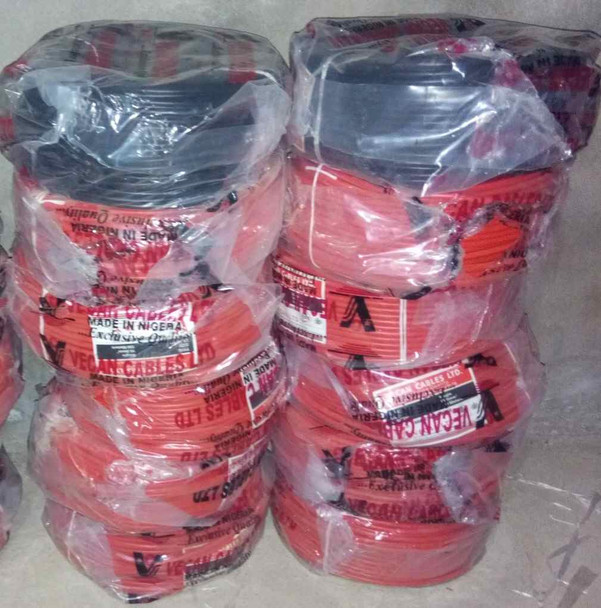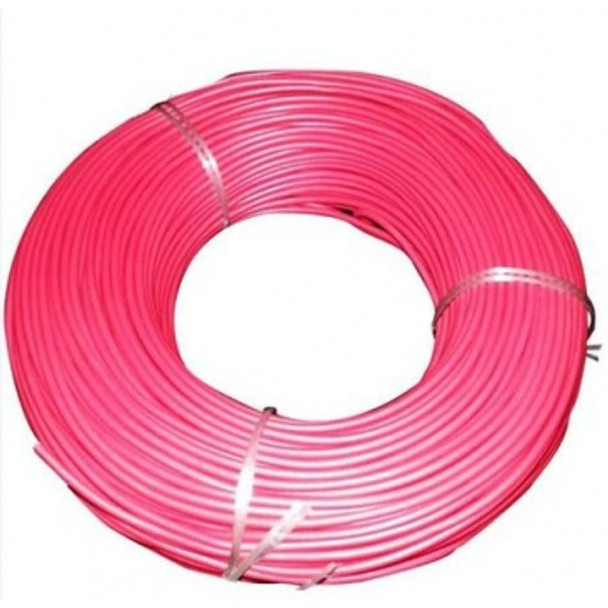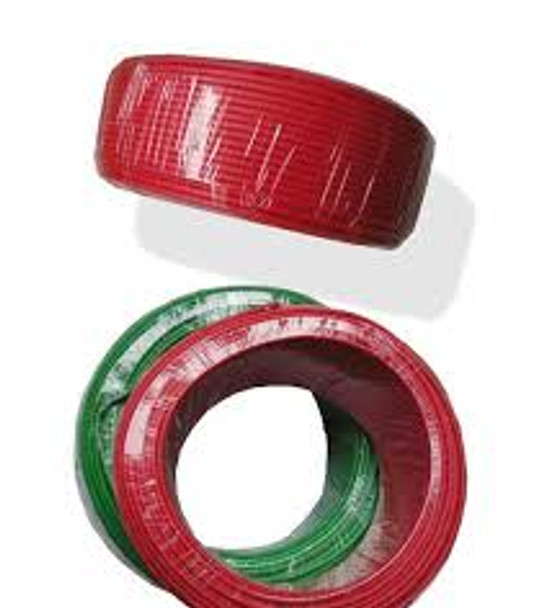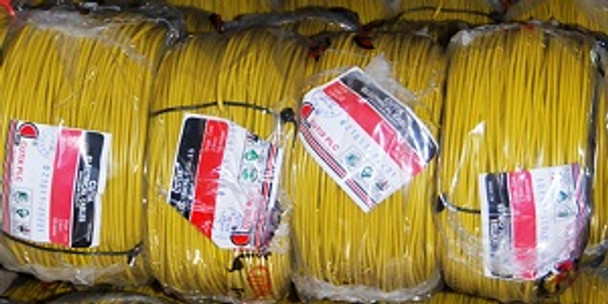Comparing Different Cable Materials: Copper vs. Aluminum
Key Takeaway
- Conductivity and Performance: Copper cables offer superior electrical conductivity compared to aluminum, making them more efficient for high-performance applications where minimal resistance is crucial.
- Weight and Cost Considerations: Aluminum cables are lighter and often more cost-effective than copper, making them suitable for large-scale installations and reducing overall transportation and handling costs.
- Durability and Corrosion Resistance: Copper is highly resistant to corrosion and has a longer lifespan in harsh environments, while aluminum may require protective coatings to enhance its durability against environmental factors.
- Application Suitability: The choice between copper and aluminum cables depends on specific application requirements, including electrical load, environmental conditions, and budget constraints, necessitating careful consideration during selection.
Introduction
Choosing the right cable material is a critical decision in any electrical or industrial project. Cable materials directly influence the efficiency, durability, and cost of electrical systems. Copper and aluminum are the two most widely used materials for electrical cables due to their unique properties and suitability for a range of applications. Each material has its advantages and disadvantages, making it essential to understand their characteristics before deciding which one to use in a specific context.
When comparing cable materials, copper and aluminum are two of the most commonly used in electrical wiring, each with distinct properties. Copper is known for its excellent conductivity, durability, and resistance to corrosion, making it ideal for high-performance applications such as in household wiring, automotive wiring, and telecommunications. Products like Vecan Cable and Cutix Copper Wire are widely used for these purposes. On the other hand, aluminum is lighter and more cost-effective, but it has lower conductivity and is more prone to oxidation, which can weaken connections over time.
Despite these drawbacks, aluminum cables such as General Cable’s Aluminum Building Wire or Southwire's XHHW Aluminum Wire are often used in large-scale power distribution where weight and cost are significant factors. Ultimately, the choice between copper and aluminum depends on the specific requirements of the application, balancing performance with cost and environmental factors.
In this article, we will explore the key features, performance differences, and applications of copper and aluminum cables to help you make an informed decision.
Vecan Cable - 6mm Single Core (copper)
Key Characteristics of Copper Cables
Copper is often considered the gold standard in electrical cabling due to its superior properties. Here are some of the key characteristics that make copper cables highly preferred:
1. Electrical Conductivity and Efficiency: Copper has excellent electrical conductivity, meaning it can transmit electrical currents more efficiently with less resistance. This makes it ideal for high-demand applications where performance is critical.
2. Strength and Durability: Copper is a highly durable material with a high tensile strength. This makes copper cables more resistant to mechanical damage and wear, which is particularly important in harsh environments or where cables need to be pulled through conduits.
3. Flexibility and Ease of Installation: Copper cables are more flexible than aluminum, making them easier to bend and route through tight spaces. This flexibility facilitates easier installation, especially in complex wiring systems.
4. Corrosion Resistance: Copper is naturally resistant to corrosion, which helps maintain its performance over time, especially in environments where moisture and other corrosive elements are present.
5. Cost Considerations: While copper cables offer high performance, they come with a higher price tag. Copper is more expensive than aluminum, which can significantly increase the cost of large-scale installations.
Key Characteristics of Aluminum Cables
Aluminum is a widely used alternative to copper, particularly in applications where weight and cost are major concerns. The following are some of the defining characteristics of aluminum cables:
1. Electrical Conductivity and Efficiency Compared to Copper: Aluminum has lower electrical conductivity than copper, which means that for the same electrical capacity, an aluminum cable must be larger in diameter than a copper one. However, aluminum is still efficient enough for many electrical applications, especially in large-scale power distribution.
2. Lightweight Nature and Ease of Handling: Aluminum is significantly lighter than copper, which makes it easier to handle, transport, and install. This lightweight nature is a key advantage in applications like overhead power lines, where the weight of the cables needs to be minimized.
3. Lower Tensile Strength and Durability: While aluminum is strong, it has a lower tensile strength than copper, meaning it is more susceptible to damage from stretching or mechanical stress. This makes it less suitable for environments where cables may be under tension or subject to frequent movement.
4. Corrosion Tendencies and Mitigation: Aluminum is more prone to corrosion, particularly when exposed to moisture. However, modern aluminum cables are often treated with special coatings to improve their resistance to corrosion and extend their lifespan.
5. Cost Advantages: One of the most significant advantages of aluminum is its cost. Aluminum is much cheaper than copper, making it an attractive option for large-scale installations where budget constraints are a primary concern.
Cutix Electrical Cable 6mm Single Core
Copper vs. Aluminum: Performance Comparison
When comparing copper and aluminum cables, several performance factors come into play:
1. Conductivity: Copper has about 60% better conductivity than aluminum, which allows it to transmit electricity more efficiently. This makes copper the preferred choice for applications requiring high electrical loads or long cable runs.
2. Weight: Aluminum's lighter weight makes it easier to install and more practical for applications such as overhead power lines, where weight can affect installation and long-term durability. In contrast, copper’s density makes it heavier and harder to handle, especially in large quantities.
3. Durability: Copper’s high tensile strength and natural corrosion resistance give it a longer lifespan and make it more durable in tough environments. Aluminum, while treated to resist corrosion, is more susceptible to environmental damage and mechanical stress over time.
4. Thermal Conductivity: Copper also has better thermal conductivity than aluminum, which means it can dissipate heat more effectively. This is crucial in high-temperature environments, where excessive heat buildup can degrade the cable’s performance or cause safety risks.
Cost and Economic Considerations
When evaluating the costs of copper and aluminum cables, it's essential to look beyond just the price of the raw materials. Several factors can influence the total cost of a cable installation, including:
1. Price Differences: Copper is more expensive than aluminum on a per-unit basis. The price of copper has traditionally been higher due to its limited supply and high demand. This can make copper cables a more costly choice for large projects.
2. Total Installation Costs: While aluminum is cheaper, it often requires larger cable sizes to achieve the same conductivity as copper. This can lead to additional expenses in terms of installation space, connectors, and support systems. On the other hand, aluminum's lighter weight can reduce labor and transportation costs, as it is easier to handle and install.
3. Long-Term Operational Costs: Copper’s superior conductivity and durability can result in lower long-term operational costs, as it provides better efficiency and requires less maintenance over its lifespan. Aluminum may involve higher energy losses due to its lower conductivity, potentially increasing operational expenses in high-demand applications.
Applications for Copper Cables
Copper is highly valued in situations where maximum efficiency, durability, and safety are required. Some common applications of copper cables include:
1. High-Demand Electrical Applications: Copper is ideal for power generation, motors, transformers, and heavy machinery, where its superior conductivity ensures reliable performance under heavy loads.
2. Wiring in Buildings: Due to its flexibility, durability, and safety benefits, copper is the preferred material for electrical wiring in residential, commercial, and industrial buildings. It is also widely used in grounding systems to ensure safety.
3. Telecommunications and Data Transmission: Copper’s ability to conduct electricity efficiently over long distances makes it a top choice for wiring in telecommunications, phone lines, and data transmission systems.
Cutix 2.5mm single core copper wire
Applications for Aluminum Cables
Aluminum cables are commonly used in situations where weight and cost are significant considerations. Some typical uses of aluminum cables include:
1. Power Transmission and Distribution: Aluminum is widely used in large-scale power distribution networks, such as overhead power lines, where its light weight reduces the load on support structures and makes installation easier.
2. Aerospace and Automotive Industries: Due to its lightweight nature, aluminum is often chosen in industries where weight savings are crucial, such as in aerospace and automotive applications.
3. Utilities and Large-Scale Installations: Aluminum cables are frequently used by utility companies for large-scale installations where the cost of copper would be prohibitive. Aluminum’s lower cost can provide significant savings in projects that require extensive wiring.
Pros and Cons of Copper Cables
Advantages:
1. Superior conductivity and efficiency
2. High tensile strength and durability
3. Excellent corrosion resistance
4. Longer lifespan and reliability in demanding environments
Disadvantages:
1. Higher cost compared to aluminum
2. Heavier weight, which can make installation more challenging
3. More expensive to transport, especially for large projects
Pros and Cons of Aluminum Cables
Advantages:
1. Lower cost, making it more economical for large projects
2. Lightweight, which makes it easier to handle and install
3. Suitable for applications where weight reduction is important
Disadvantages:
1. Lower electrical conductivity, requiring larger cable sizes
2. Susceptibility to corrosion, although this can be mitigated with proper treatments
3. Less durable and strong than copper, making it prone to mechanical damage
Cutix 1.5mm single core copper wire
When to Choose Copper or Aluminum Cables
The choice between copper and aluminum cables largely depends on the specific requirements of the application. Here are some factors to consider:
When to Choose Copper:
Copper is the best choice when performance, durability, and safety are top priorities. If the project involves high electrical loads, critical systems like motors or transformers, or installations in harsh environments, copper’s superior conductivity, strength, and corrosion resistance make it the better option. Copper should also be used where space is limited, as its smaller diameter allows for more compact installations.
When to Choose Aluminum:
Aluminum is the more economical choice when weight and cost are significant considerations. For large-scale installations such as power transmission lines, or in industries like automotive or aerospace where weight is a critical factor, aluminum’s lightweight nature offers substantial benefits. If budget constraints are a primary concern and the installation allows for larger cables, aluminum can be a cost-effective alternative to copper.
Frequently Asked Questions
1. Why is copper considered better for electrical conductivity?
Copper has a higher electrical conductivity than aluminum, meaning it can transmit electrical currents with less resistance. This makes it more efficient and suitable for high-demand applications where minimizing energy loss is critical.
2. What are the main advantages of aluminum cables?
Aluminum cables are lightweight, cost-effective, and easy to handle. They are especially beneficial in large-scale power distribution systems or industries where weight savings are crucial, such as aerospace or automotive sectors.
3. Can aluminum cables be used in building wiring?
Yes, aluminum cables can be used in building wiring, but they are less common due to their lower conductivity and higher susceptibility to corrosion. Copper is generally preferred for residential and commercial building wiring for its safety and durability.
4. Which cable material is more resistant to corrosion?
Copper is more resistant to corrosion than aluminum. However, aluminum cables can be treated with special coatings to improve their corrosion resistance, making them suitable for many environments.
5. Is it more cost-effective to use aluminum cables?
Yes, aluminum is generally more cost-effective than copper due to its lower price and lighter weight, which reduces transportation and installation costs. However, the long-term operational costs, including energy efficiency and maintenance, should also be considered when making a decision.
Related Articles
Understanding Cable Types: Applications and Uses in Industry
Which electric cable is best for house wiring
Conclusion
In conclusion, both copper and aluminum have their own unique advantages and disadvantages when used in electrical and industrial applications. Copper’s superior conductivity, durability, and resistance to corrosion make it the ideal choice for high-performance and high-demand systems. On the other hand, aluminum’s lightweight nature and lower cost make it a viable option for large-scale projects where budget and ease of installation are critical. Ultimately, the decision between copper and aluminum depends on the specific requirements of the project, including the balance between performance, cost, and environmental conditions.
If you’re looking for high-quality copper or aluminum cables for your next project, explore the wide selection available at GZ Industrial Supplies. Our range of cables is designed to meet the needs of various industrial and electrical applications, providing you with reliable and cost-effective solutions. Visit us today to learn more!












